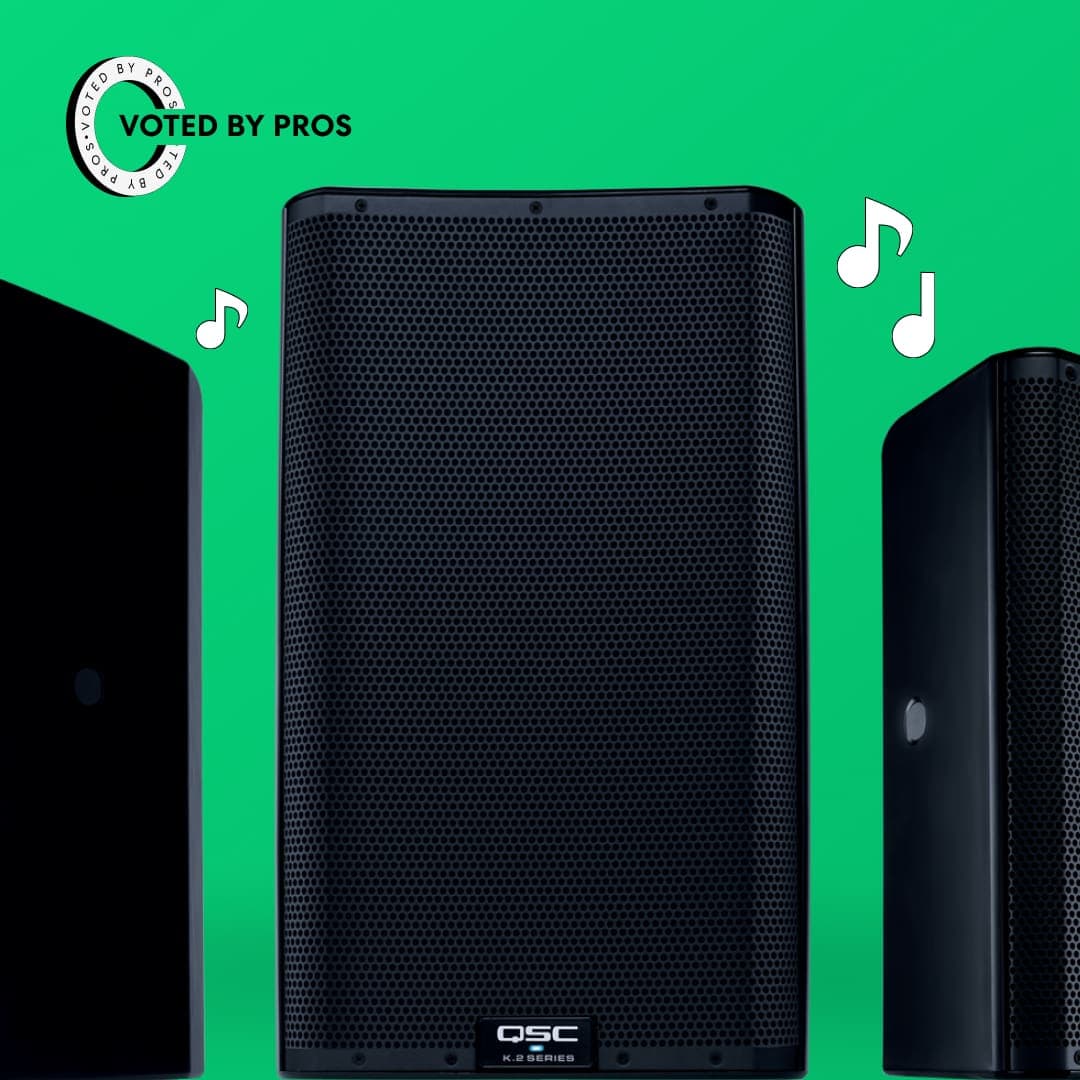Making a living in the music business is the ultimate dream of every serious musician. But out of the countless individuals with a passion for music, only a select few will make a profitable business out of it. That doesn’t mean reaching your goals is impossible. If you want to earn reliable income from your music career, you need to treat it like any other business. That means making a detailed blueprint that will take you from passionate hobbyist to successful professional. This step-by-step guide to developing a music business plan will set you on the right path.
Why you need a music business plan
Whether your goal is to have a career as a professional musician, recording artist, producer, or music teacher, documenting the path you’ll take with a music business plan will be helpful to your cause. Your business plan outlines your goals, identifies the practical methods you’ll take to achieve them, and lists the resources you have and will need.
Not only will a concrete business plan keep you on course, it will also demonstrate your credibility in the eyes of others. Potential clients and business partners will see you as a professional and not another starving artist. If you ever need to take out a business loan or raise money for investors, a business plan is a must-have.
Crafting your music business plan isn’t something you can do in one sitting. You’ll need more than an afternoon to get this right. Take your time, bite off piece-by-piece, and chew your thoughts over thoroughly.
Where to start
Our first piece of advice is as old as time: know thyself.
You need some clarity of purpose before you can craft a useful music business plan. Ask yourself:
- Who is my audience?
- What is my ultimate goal?
- Why do I want to do this?
Having this understanding will make it easier for you to explain your vision to others and convey your enthusiasm. It will also establish the framework for your music business. This step is crucial if you’ll need people to buy in to help you reach your goals.
The main components of a music business plan
The content of your music business plan will vary depending upon whether you’re aiming to start a music school, be a producer, or work as an artist. But the fundamental components are the same either way. Here’s what you’ll need:
- Mission Statement
- Executive Summary
- Audience Analysis
- SWOT Analysis
- Marketing Plan
- Financial Considerations
- Metrics
Let’s look at each of these in turn.
Mission Statement:
This can be as short as a few sentences, as long as it adequately describes who you are as an artist or a musical entrepreneur and what you’re trying to accomplish. While this might sound simple, think things through a bit before you try to draft your statement. Everything that follows here will hinge upon it.
Executive Summary:
The executive summary is a one-page synopsis of your plan. It should include an introduction as well as a description of your endeavors. Details about the funding you already have and what you’ll need in addition to a brief accounting of your plans for putting all of it into play are important too.
Most experts recommend saving the drafting of this part for last. It’s essentially a digest of all the other parts of your plan. Doing it last allows you to draw upon the information you’ve drafted for all of the other steps.
Audience Analysis:
Here’s where you’ll demonstrate your understanding of your target audience. If you’re already performing, teaching, or producing on the side, think about what traits the people who follow you have in common.
If you’re just getting started, find someone doing what you want to do whose style and circumstances are similar to yours, and analyze their target market. Create a demographic sketch of your target audience based on gender, age, location, musical tastes and favorite venues.
Strengths, Weaknesses, Opportunities & Threats:
Think about the qualities that make you unique. List everything that comes to mind, from technical mastery and creative spark to teaching older demographics and networking. Your skills might not seem extraordinary on an individual level, but combine all your best qualities and you’ll find there isn’t anyone quite like you on the market.
Don’t forget about your weaknesses. Identity these not as qualities to promote, but as areas to work on in the future. Being aware of your shortcomings will also help guide your decision on potential business partners in the future. Let your inner critic loose, but realize that this is an exercise in personal growth, not tearing yourself down.
Had enough reflecting? Let’s take a look at the marketplace. Think about potential gaps in the industry you can exploit. Perhaps your competitors are overlooking a key value and you see a way to provide it both efficiently and effectively. These are your opportunities.
Threats could include technological shifts, cultural changes, the emergence of new artists, competition, and new trends. The music world moves fast, and today’s hot act can end up as yesterday’s news before your can say “more cowbell!” Brainstorm any roadblocks you picture yourself facing over the next few years and strategies you can use to overcome them.
Marketing plan:
Your marketing plan will detail how you’ll spread the word about yourself. Consider how much money you can reasonably invest into marketing and work out how you’ll spend it to reach as many of the right people as possible. Think about how you’ll grow your online presence—including social media, a press kit, and publicity materials such as a logo and photography.
Finances:
Get a full account of your current cash flow situation. List how much capital you currently have and estimate how much it’ll take to get your operation up and running. When in doubt, overestimate. Studio time, engineering talent, transportation, legal fee, copyrights and trademarks are all important considerations when projecting your budget.
Measuring your progress:
At what intervals will you go over the financials to see how you’re advancing? What are the milestones by which you’ll mark your achievements?
You’ll also need a method for measuring your impact on the market in terms of the reputation you build. Social media outlets provide analytical tools to help you track these metrics. They can also help you pinpoint the demographics of your audience.
Establishing your key performance indicators (KPIs) can help you set the standards by which you will gauge your success. Sharing this information with others makes you accountable because they can look at your projections and see how much progress you’ve made toward achieving them.
Summarizing your music business plan
As we mentioned above, once you have all of these areas covered, you can then condense the information each section contains to create your executive summary. After all, how will you know what to put in it until you’ve examined all of these other areas first?
The importance of multiple income streams
Success in the music industry takes a lot of work and a little luck, but you can stack the deck in your favor by building multiple income streams. That way, if one area slows down, you’ll have another one in play to keep you rolling until the next opportunity presents itself. Revisit your strengths and opportunities and start brainstorming ideas. If you get stuck, here’s a quick list to get you started:
Give music lessons. Chances are if you’ve got the chops to play paid gigs, you’ve got enough skills to pass on to some novice students. Giving music lessons can be a great way to add some extra recurring income.
Start a YouTube channel. With over 2 billion active users, YouTube might just be your biggest source of untapped attention and potential.1 The platform offers users a chance to learn or be entertained, and as a musician you’re well-positioned to offer both. You could upload instructional videos or footage of yourself performing. You’ll get to keep a portion of any ad revenue your videos make. And if the right person sees your content, it could open the doors to even greater opportunities.
Explore the marketing world. If composition is your thing, you might be overlooking a potentially huge money-maker—marketing and advertising. Brands are in constant need of good video content to market their products, and those videos need music to truly capture attention. If you’ve got a knack for putting together atmospheric instrumentals, creating music for ads could seriously help stabilize your income.
Open your own studio. If you have the capital to invest and live in an area underserved by recording studios, you might want to consider opening your own. While you’re not using it for your own projects, you can rent it out to other local musicians and producers. If there’s enough demand, you could cover the costs of equipment and rent and even have a little profit left over.
Explore session work. Sure, your band is your baby, but if you’ve got time on your hands and musical versatility to boot, why not offer your services as a session musician? Session work is an effective way to boost your income, make new connections and get your name out there as a legit professional. If an artist is truly enamoured with your work, they could invite you to join them on tour.
Another important consideration in your music business plan is protecting your livelihood from the consequences of unintentional accidents. General liability insurance is key to helping you stay focused on your business. Carrying a policy also demonstrates to potential clients that you are a serious professional — whether you’re a musician, DJ, or another kind of entrepreneur in the entertainment industry.
Source:











